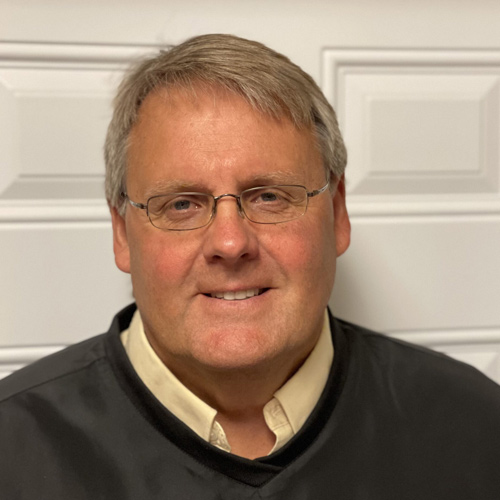Mike Hagen, Independent Contractor with CanSun LLC


Mike Hagen is a self-employed independent contractor specializing in sunflower research through CanSun LLC. Mike earned his bachelor’s degree in agronomy from the University of Minnesota and his master’s degree in plant breeding from North Dakota State University. He has worked in both the research and commercial side of the sunflower business. Mike and his wife live in West Fargo, North Dakota.
Where did you work before CanSun LLC?
My first 27 years of life I was a beekeeper (more on that later). Directly out of graduate school I began working as a sunflower seed production manager, but I wanted to find a job in breeding. I was offered the head sunflower breeding job at Proseed, Inc. where I developed a full program including both mid-oleic oilseed sunflower and confection sunflower. During that time Proseed released several commercial hybrids of both oil and confection types, including one mid-oleic Clearfield hybrid.
After that I left the research side of the sunflower seed business and tried my hand at the commercial side. I worked as a sunflower seed product manager and managed a licensing and wholesale sunflower seed business. After eight years working in the commercial side and going through several acquisitions and mergers within the industry, I was looking for a way back into research when I was approached by the sunflower group from Carman, Manitoba. They were searching for new confection hybrids that could be grown in Manitoba.
What got you interested in this area of work?
I got a lot of exposure to sunflower breeding and seed production early on in life. My father was a sunflower breeder for Dahlgren & Co and built up a large bee operation on the side. His hives were used primarily for pollinating sunflower seed production fields for Dahlgren & Co in Crookston, Minnesota. I worked with my father in his sunflower breeding nurseries and in the Dahlgren seed production fields. This is when I got my initial exposure to sunflower breeding. I enjoy the work, being outdoors, and not spending too much time in an office. I like being involved in the agriculture sector and helping farmers.
Tell us a bit about what you’re working on.
In 2011 the sunflower group from Carman (now Manitoba Crop Alliance – MCA) was inquiring about the possibility of licensing confection hybrids from my father’s sunflower program. This eventually led to the acquisition of my father’s breeding material, the formation of CanSun LLC and the launch of a new herbicide tolerant breeding program owned by MCA.
Through this partnership I am contracted to develop a herbicide tolerant confection breeding program capable of generating herbicide tolerant long seeded confection hybrids that are highly adapted to the Canadian environment and can perform at a high enough level to be considered for commercialization. Based on results and observations made in 2021 it appears there are several pedigrees that could be considered for possible commercialization and moved into the pre-commercial testing phase.
What can you say about the value of farmers providing funding and support to your program with MCA?
Without farmer support of the program, I believe the progress of developing and isolating new hybrids for commercialization would have been much slower. Plant breeding is a “numbers game” and requires the development of numerous parent lines and the screening of hundreds of experimental lines in order to find hybrids that have all the traits necessary in a hybrid for commercialization. With farmer support we have been able to keep the breeding program at a level so we can achieve this.
How does that farmer funding and support directly benefit farmers?
Funding will provide new variety alternatives to Canadian farmers and also provide a long-term safety net as a potential source of new hybrids in the future. The industry can be self-sustaining rather than rely only on outside sources for confection seed varieties.
How do you spend your time outside of work?
Fishing, fishing, and fishing! I love being on the water. My favorite place to fish is Ontario, Canada
What gets you excited about the work you do?
Seeing progress. Each year the field of experimentals gets better. Based on the agronomics and seed types of several program hybrids in 2021 it appears that soon we will have hybrid(s) isolated that can be offered for commercialization.
What is the best piece of advice you’ve received?
I had a TA in college that said one day that I was “grad school material”. Because of that single statement/moment, I went on to graduate school.
